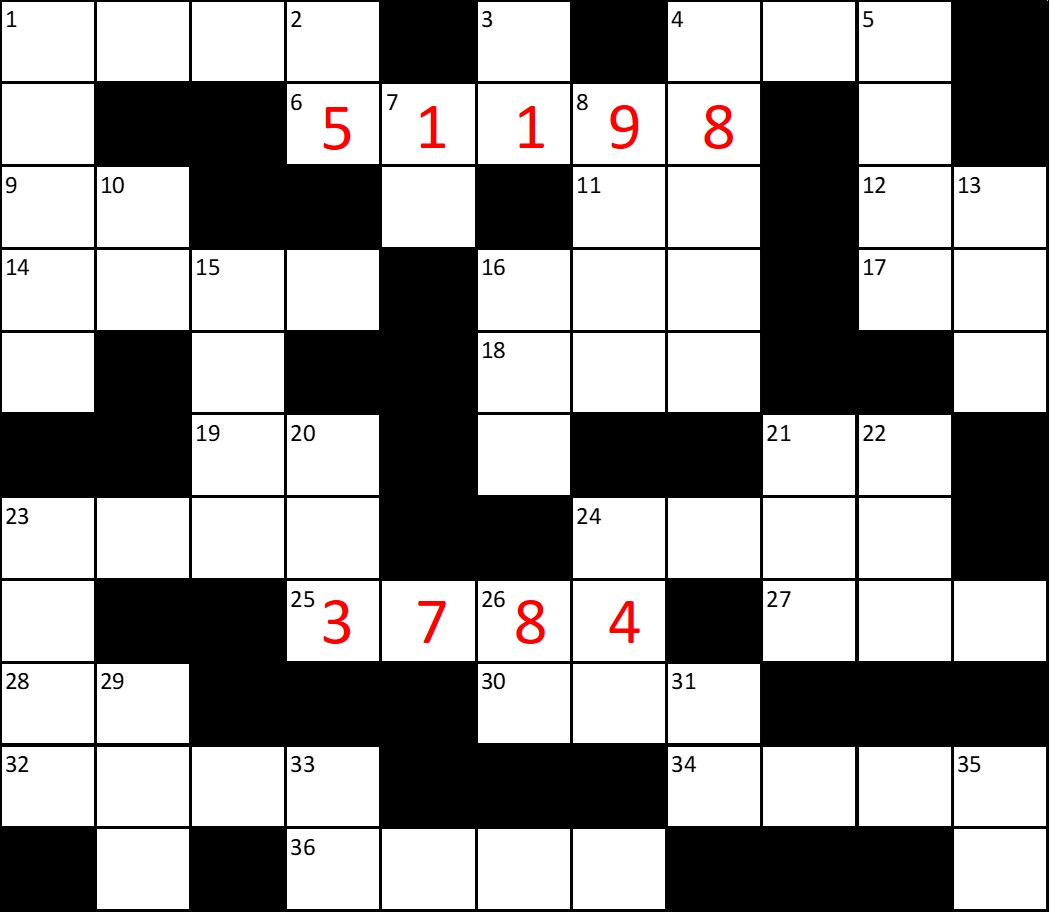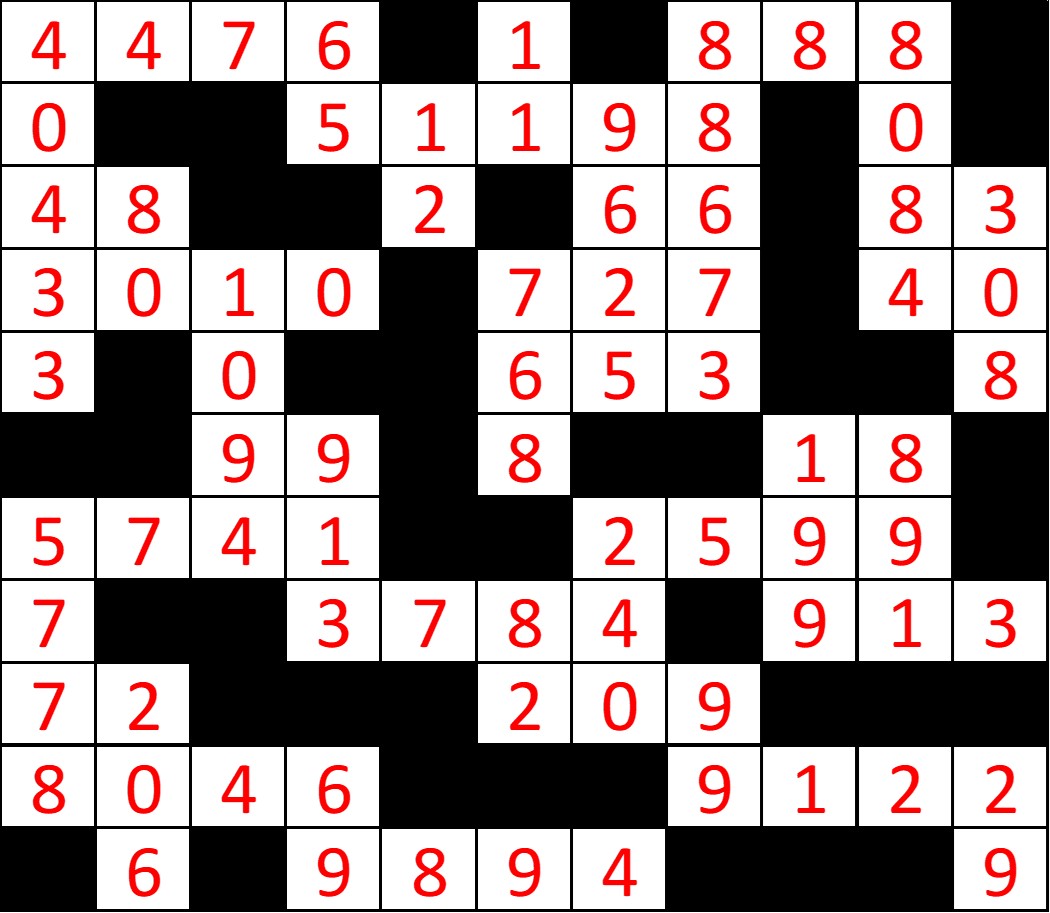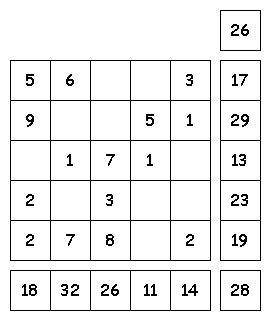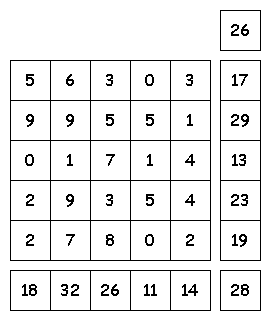To make this more challenging, do not use a calculator.
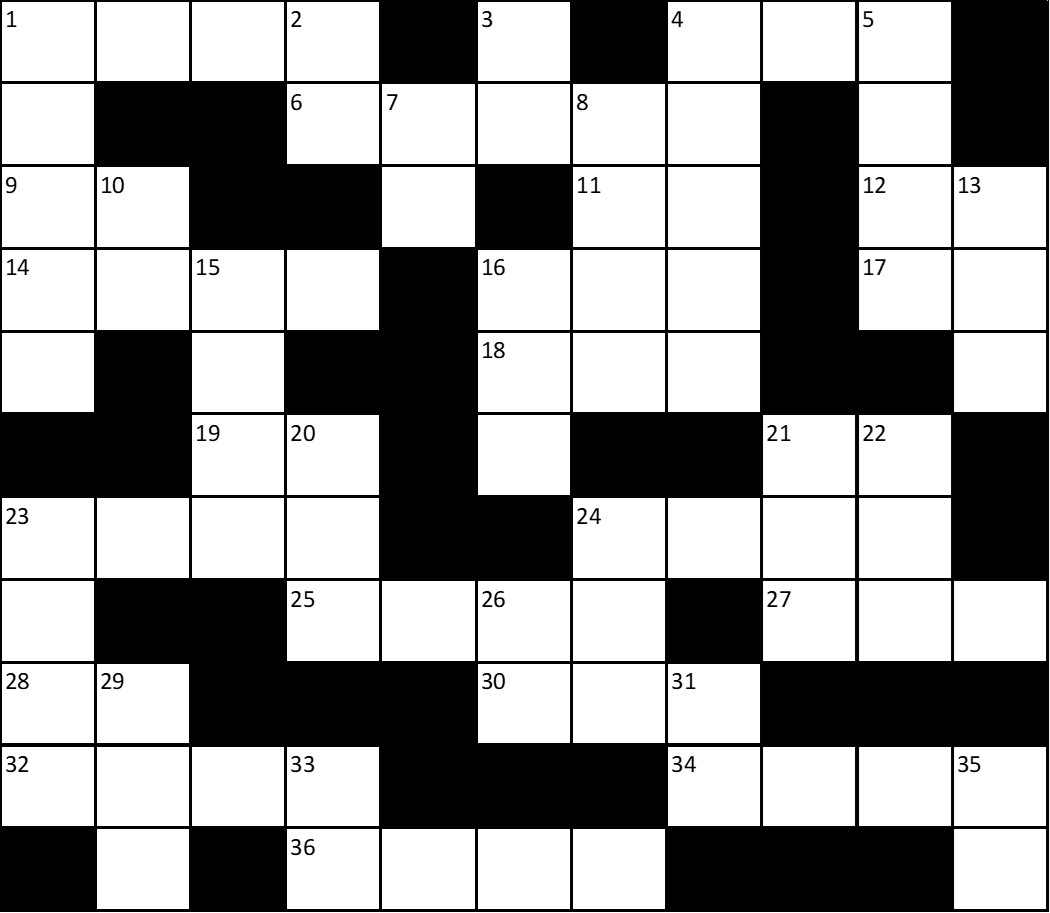
Excel version of the crossword grid for screen readers
| ACROSS | DOWN |
|---|---|
| 1. 1790 + 2686 | 1. 40433 x 1 |
| 4. 8880 ÷ 10 | 2. 94 - 29 |
| 6. 318 x 161 | 3. 14 - 3 |
| 9. 480 ÷ 10 | 4. 359 x 247 |
| 11. 1122 ÷ 17 | 5. 94 x 86 |
| 12. 415 ÷ 5 | 7. 16 - 4 |
| 14. 70 x 43 | 8. 3564 + 6061 |
| 16. 727 x 1 | 10. 32 + 48 |
| 17. 280 ÷ 7 | 13. 2464 ÷ 8 |
| 18. 936 - 283 | 15. 390 + 704 |
| 19. 36 + 63 | 16. 1087 - 319 |
| 21. 6 +12 | 20. 83 x 11 |
| 23. 5741 x 1 | 21. 281 - 82 |
| 24. 3598 -999 | 22. 356 + 535 |
| 25. 5360 - 1576 | 23. 57780 ÷ 10 |
| 27. 7304 ÷ 8 | 24. 344 - 104 |
| 28. 1584 ÷ 22 | 26. 820 ÷ 10 |
| 30. 19 x 11 | 29. 71 + 135 |
| 32. 11264 - 3218 | 31. 1683 ÷ 17 |
| 34. 3378 + 5744 | 33. 23 x 3 |
| 36. 3533 + 6361 | 35. 29 x 1 |
